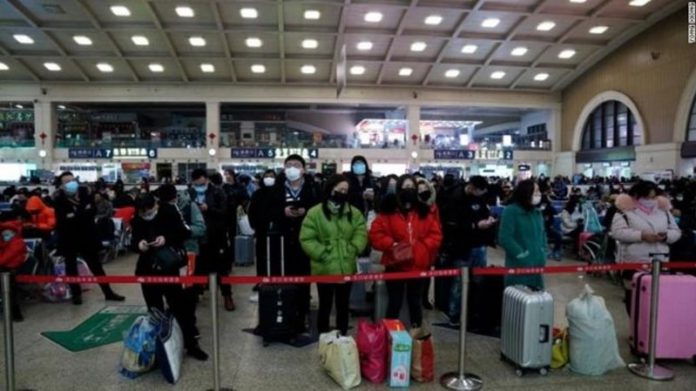The U.S. government on Monday will stop conducting enhanced screening of passengers on inbound international flights for COVID-19, Yahoo News has learned.
The screening operations have been held at select airports since January, when the first cases of the disease began to emerge from Wuhan, China. Since March, incoming international flights from select high-risk countries, including much of Europe, China and Iran, among other regions, have been funneled through 15 designated airports in the United States.
As of Monday, however, international flights will no longer be funneled into select airports for screening purposes and all screenings will come to a halt, according to communications and sources. All screenings and rerouting of select international flights will cease at exactly 12:01 a.m. on Monday, Sept. 14.
Currently, travelers upon arrival to the United States are sent to health screeners who take their temperatures and conduct a basic health screening with questions about typical COVID-19 symptoms. After the health screening, passengers proceed through passport control and customs.

One aspect of the screening is that travelers provide contact information, which can be used to perform contact tracing for infections. Without that information, it likely won’t be possible to contact passengers on a flight who may have potentially been exposed to someone infected with COVID-19.
The orders to cease prescreening operations came from the White House, with strict orders to keep the information secret until a public announcement is made. Meanwhile, behind the scenes, the various agencies — and contractors — involved in the airport screening operations are working frantically to prepare for Monday’s shutdown.
There are several agencies involved in aspects of the screenings, including the Centers for Disease Control and Prevention, Customs and Border Protection and the Department of Homeland Security. Most screenings are administered at the airports by AMR, a Dallas contractor.
The White House orders to shut down the airport screenings for inbound international passengers comes amid rising COVID-19 case numbers and death counts and as experts warn of a potential second wave of the pandemic this fall.
The White House, the CDC, the Department of Homeland Security, Customs and Border Protection and AMR did not immediately respond to Yahoo News’ request for comment.
A government official told Yahoo News that the Transportation Security Administration, which is not directly involved in the screenings, had been briefed on the upcoming changes for its awareness.
The airport screening changes come not long after news late last month that employers were shedding more than 100,000 jobs, with airlines a major driver of those cuts.
This is also not the first time the White House has struggled with the question of airport COVID-19 screenings. The House oversight subcommittee on economic and consumer policy has previously criticized the White House for what it regarded as lax health screening of international passengers, and expressed concerns that plans to expand those screenings to domestic travelers were sidelining scientific advice.
In late April and early May, the White House reportedly clashed with the CDC over a proposal to screen domestic airline passengers for signs of COVID-19. “We’re also setting up a system where we do some testing, and we’re working with the airlines on that,” Trump said on April 28.
In the end, no national plan for domestic COVID-19 screenings at airports was ever announced.


